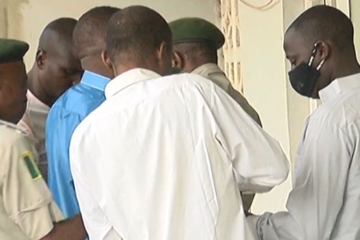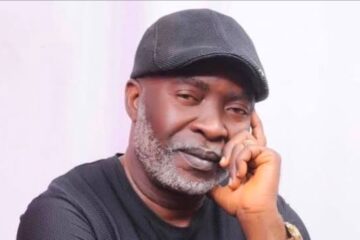31 states owe CBN N340bn bailout funds

Thirty-one state governments owe the Central Bank of Nigeria, CBN, a total of N339.9bn obtained to pay workers’ salaries between 2015 and 2023, a document obtained from the apex bank has revealed.
The document also stated that the sub-nationals had yet to pay an outstanding of N339.97bn and a loan default of N1.31bn as of September 2023.
The fund, which was facilitated through the Salary Bailout Facility, a strategic intervention by the CBN aimed at alleviating the fiscal pressures faced by the states, was part of the over N10.3tn intervention fund made available by the apex bank under the immediate former CBN governor, Godwin Emefiele.
In contrast, the current governor, Olayemi Cardoso, stopped the programme, stressing that the apex bank could not continue to fund more intervention programmes amidst the current economic crisis.
The CBN said the SBF was designed to help the state governments to clear the backlog of salaries owed their employees. The initiative underscores the critical role of the CBN in stabilising the country’s financial landscape, especially in times of fiscal distress faced by state administrations.
The programme, which has been closed according to its status report, involved key stakeholders, such as the benefiting state governments, Deposit Money Banks, the Federal Ministry of Finance, and the Accountant-General of the Federation, all of whom played pivotal roles in implementing and managing the bailout package.
A breakdown of the report showed that 31 state governments benefited from the initiative, with N457.17bn disbursed. Despite the substantial disbursement, the principal repayment made so far totalled N117.21bn, with interest repayments at N45.21bn.
It also showed that the states collectively borrowed N457.17bn to pay salaries to their respective civil servants and an overdue amount of N1.31bn.
The report further said the top beneficiaries of the bailout facility included Imo, which received N20.46bn; Kogi, N20.26bn; Kano, N20.21bn; Oyo, N16.81bn; and Osun, N15.93bn.
The inability of the states to perform their primary obligation to their workforce has been a front-burner issue in recent times amidst clamour by labour unions to increase the minimum wage from the current N30,000.
Last year, state governments borrowed about N46.17bn from three banks to pay salaries between January and June, according to an analysis of the half-year 2023 financial statements of Access Bank, Fidelity Bank, and the Zenith Bank Group.
It was observed that the states borrowed the most from Access Bank in the six months, with a record of N42.97bn loan.
This was followed by Zenith Bank with N1.78bn, and Fidelity Bank with N1.42bn in the six months.
The Punch also reported the inability of 24 states to pay workers’ salaries this year without having to wait for federal allocations from the central government despite improved federal allocations.
The development also means that the respective wage bills of the affected states surpassed their various internally generated revenues, raising concerns about workers productivity and state governments’ efficiency in internal revenue generation.
The 24 states include Bayelsa, Ondo, Yobe, Sokoto, Taraba, Plateau, Oyo, Niger, Nasarawa, Kogi, Kebbi, Katsina, Jigawa, Gombe, Ekiti, Ebonyi, and Borno.
Others are Benue, Bauchi, Adamawa, Akwa Ibom, Cross River, Abia, and Delta.
In 2023, state governors got the most Federal Account Allocation Committee disbursements in at least seven years. The rise in FAAC allocations to the three tiers of government, especially the states, followed the removal of petrol subsidy and currency reforms of the current administration. The reforms have reportedly led to a 40 per cent boost in income.
According to the document, the domestic debts rose by N4.94tn from N48.3tn recorded in June 2023 to N53.3tn as of December 31, 2023.
It was observed that although external loans reduced by $664m in the six months ($43.2m in June and $42.4m in December), the figure increased by $901m when compared with $41.5m in September and $42.4m in December.
The DMO in a statement on Friday said the public debt soared by 10.7 per cent to N97.34tn in the fourth quarter of 2023 from N87.91tn recorded in the previous quarter.
Delving deeper into the specifics, the DMO explained that the N97.34tn public debt comprised N59.12tn in domestic debt and N38.22tn in external debt.
It said the increase was largely due to new domestic borrowing by the Federal Government to part-finance the deficit in the 2024 budget, and disbursements by multilateral and bilateral lenders, adding that loans from multilateral sources constituted 49.77 per cent of the country’s external debt stock, while loans from bilateral sources constituted 16.02 per cent.
It said, “Nigeria’s public debt stock as of December 31, 2023, was N97.34tn or $108.229 bn. This amount comprises the domestic and external debt stocks of the Federal Government of Nigeria, the 36 state governments, and the Federal Capital Territory.
“There was an increase of N9.43tn over the comparative figure for September 2023, which was largely due to new domestic borrowing by the FGN to partly finance the deficit in the 2024 Appropriation Act and disbursements by multilateral and bilateral lenders.”
An analysis of the domestic debts showed that the government borrowed N2.29tn from the FGN bonds market with the figure increasing by 5.45 per cent from N41.97tn recorded in June 2033 to N44.26tn as of December 31, 2023.
The government also borrowed N1.79tn from treasury bills, N8.47bn from savings bonds, N350bn in Sukuk loans, and N549.02bn from promissory notes.
Under external debt, increased borrowing was observed from the African Development Bank and the Exim Bank of China, with a total loan of $541.5m.
The increased debt is, however, contradictory to promises made by the Tinubu administration to reduce borrowing and focus more on increasing revenues.
The Minister of Finance and Coordinating Minister for the Economy, Wale Edun, at different forums, noted that the country needed to improve its revenue standing because it could not afford to rely on borrowing going forward.
Reaffirming the country’s revenue position, the Minister of Budget and Economic Planning, Abubakar Bagudu, declared at the public presentation of the 2024 budget that revenue generation remained the major hindrance to the country’s fiscal viability.
“Revenue generation remains the major fiscal constraint to Nigeria’s fiscal viability. However, the government is reviewing current tax and fiscal policies to improve revenue generation. The target is to increase the ratio of revenue to the GDP from less than 10 per cent currently to 18 per cent within the current term of this administration,” he said.
This is a position backed by the World Bank, which believes that Nigeria’s debt servicing cost is on course to hit over 200 per cent of its revenue by 2026 until its recent reforms and policy redirection. The bank, however, believes that recent reforms in the country are set to boost revenues and keep debt levels below 40 per cent of the GDP over the medium term.
It predicts that debt servicing cost is set to fall from about 101.5 per cent of total revenue in 2022 to 43 per cent in 2026.











